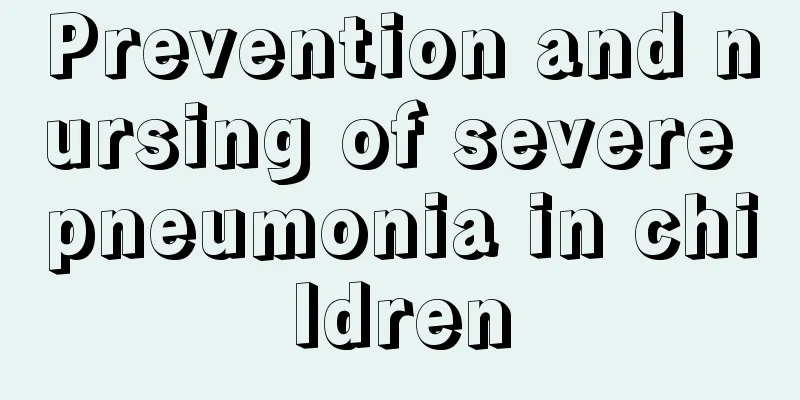Children's nasal discharge blood

|
There is nothing wrong with a runny nose, but if you find that there is some blood in the runny nose, this will make people very worried, because in life most people think that nosebleeds are a very serious disease, especially many people often pick their noses due to trauma or surgery, and there are foreign objects in the nasal cavity. These are the reasons for the patient's nose bleeding, and further examination is needed to choose the appropriate method to confirm the diagnosis. Causes of symptoms 1. Local causes 1. Idiopathic 2. Traumatic: due to local mechanical injury, such as nose picking, nose blowing, nasogastric feeding, foreign objects in the nasal cavity, etc. Skull base fracture causes rupture of the internal carotid artery (via nosebleed). Surgical trauma, such as maxillary sinus lavage, nasal biopsy, turbinate surgery, etc. 3. Inflammatory: acute rhinitis, acute sinusitis, dry rhinitis, atrophic rhinitis, erosion of nasal septum mucosa, stimulation of harmful chemical gases and specific infections, such as diphtheria. Hemorrhagic necrotic nasal polyps are a bleeding disorder that mimics a malignant tumor. Pathological examination can confirm it. 4. Nasal septum diseases: nasal septum deviation, perforation, etc. 5. Nasal and paranasal sinus tumors (1) Benign tumors: nasal septum capillary hemangioma and nasal sinus hemangioma. (2) Malignant tumors: malignant tumors of the nasal cavity and paranasal sinuses, malignant granulomas, etc. 6. Nasopharyngeal tumors: nasopharyngeal angiofibroma, nasopharyngeal carcinoma, etc. 2. Systemic causes 1. Blood diseases: leukemia, aplastic anemia, etc. 2. Hypertension and arteriosclerosis. 3. Increased venous pressure: emphysema, cor pulmonale. 4. Lack of vitamin E, K, B2, and P. 5. Poisoning: mercury, phosphorus, arsenic, and benzene poisoning. 6. Others: acute infectious diseases, endocrine disorders (ectopic menstruation), active rheumatic fever, uremia, sepsis, etc. Common diseases Acute rhinitis, acute sinusitis, dry rhinitis, atrophic rhinitis, nasal septum mucosal erosion, diphtheria, nasal septum deviation, perforation, nasal septum capillary hemangioma, nasal sinus hemangioma, nasal sinus malignant tumor, malignant granuloma, nasopharyngeal angiofibroma, nasopharyngeal carcinoma, hypertension, arteriosclerosis, emphysema, cor pulmonale, internal carotid artery rupture, vitamin deficiency, poisoning, etc. |
>>: What are the typical symptoms of acute nephritis in children?
Recommend
What are the precautions for babies to eat sugar pills?
The so-called sugar pill is a vaccine, which is a...
Can children eat durian at night?
Durian is a relatively common fruit, but due to i...
Why is the inside of the newborn's lips white?
The arrival of a baby will bring great surprise t...
What is the treatment for precocious puberty in children?
Precocious puberty has become a very common probl...
My child is coughing after getting the chickenpox vaccine
Coughing is a common thing nowadays, especially a...
What to do if your child has a sore throat
Children are very important to every family, beca...
What should I do if my child has a fever of 37.5 degrees?
After the child is born, many new mothers will wo...
5-year-old baby height and weight
We all know that babies grow and develop very fas...
Don't let your children play with laser pointers, they can cause blindness
The General Administration of Quality Supervision...
What are the reasons for children to have headaches and vomiting but no fever?
In the process of growing up, babies often get si...
Why is my 10-month-old baby restless when sleeping?
A 10-month-old baby has already developed a certa...
What is the development standard for a 100-day-old baby?
After every child is born, parents will take the ...
Why does a child have a stuffy nose at night?
Children generally have weaker constitutions and ...
What are the methods for treating constipation in children?
When children suffer from constipation, I believe...
Can babies eat mangoes when they have diarrhea?
Babies' bodies are generally fragile, so if t...









